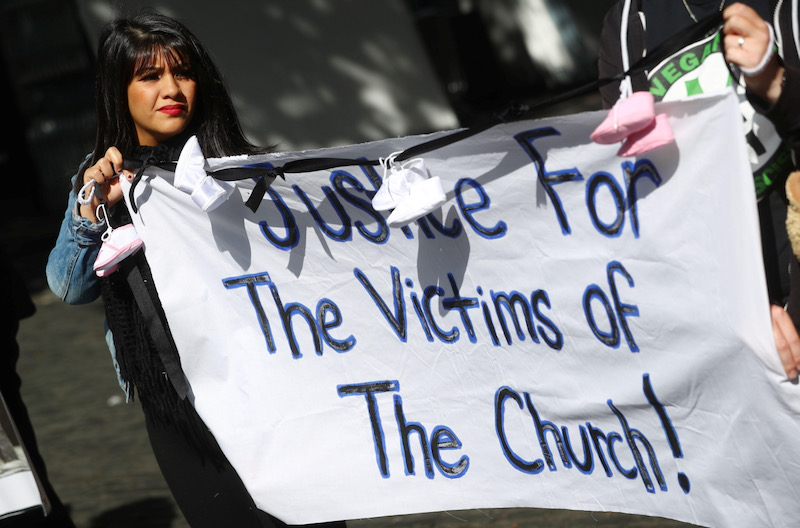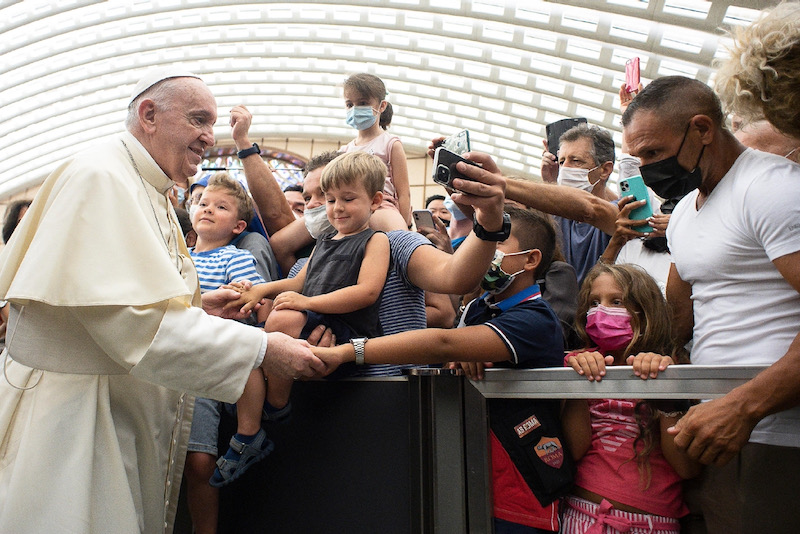ACTA, A Call to Action, held its annual National Conference on Saturday 16th October, delivered via Zoom and the first since the national lockdown in 2020.
It was a time to reflect on how much has changed in a few short years – but much more on what needs to change in the future.
Delegates and representatives heard from a variety of speakers on how the Church has shaped its thinking on journeying together.
Ecclesiology rubbed shoulders with the specifics of managing Synod 2020 in Liverpool. The early history of the Church was brought into the present with reflections on how technology links people as much as it divides them.
The past holds lessons for the present and the present sets challenges for the future of the Church. What did we learn? We learned that much of the Church is still coming to terms with synodality as a means of being Church. Very little in the development of the Christian faithful in the last half century has prepared the majority of Catholics for engaging with the very broad questions facing us in the early 2020’s.
The history of the Catholic Church in England and Wales, in the last fifty years, has been one of declining Mass attendance, growing alienation caused by the clerical abuse scandals and a diminution of its influence in the field of public discourse.
Synodality with its emphasis on listening and discernment calls all Catholics to be active participants in the re-shaping of the Church. It is the logical extension of a missionary Church, a Church that goes forth and is more caring and active in the secular world.
The reforms of Pope Francis have brought to fruition the work of the new evangelisation begun under Popes Paul V1 and John Paul 11. Synodality changes the dynamics of our faith. It calls for increased participation and greater collaboration, a sharing of the burdens and a commitment to co-responsibility. It demands that we move from deference to respect, from passive to active, from occasional to permanence. It marks the point at which lay Catholics move from adolescence to adulthood, with the opportunities and the responsibilities that come from that change.
It is in danger of being presented in some dioceses as a one-off, a product for a moment in history, rather than the start of a process that will shape the Church for generations to come.
The transformation of society as a result of the pandemic needs to be shaped by the values of the Gospel and the call to synodality recognises the mutual concern for our fellow citizens and the need to listen to their voice. Our synodal process shapes the Church to better respond to the world.
We learnt that there is an appetite to make the synodal process work for the improvement of the Church in the world. If the Catholic Church is to find its voice again in the Courtyard of the Gentiles, it will do so because of the engagement of the skills and aptitudes of all the People of God. It will be on the basis of how we all engage with the wider, secular world. The success of any synodal process will require the capacity to listen to voices at the periphery, the voices often unheard. Again, this calls for a diversity of processes of engagement – with people who are trusted and in close contact with the poor and dispossessed.
We learnt that the Catholic Church has a capacity for reform and renewal based on a shared commitment to listen, respond and change. Synodality is a significant part of this process but is dependent on that parrhesia, boldness and courage to speak out, that has been too absent for too long and is an essential prerequisite of the lay faithful, and junior clergy and religious.
It is not a new concept. The Rule of St Benedict recognised that the views of the youngest in the community might be the wisest counsel. Its capacity for reform will be in direct proportion to its capacity to understand the lived experience of the lay faithful. A significant achievement of any synodal process will be an improved understanding of the reality of life for many as a result of the pandemic.
These two elements, the courage to speak out and the humility to listen deeply, are integral and essential to a process that contain the seeds of permanent renewal. If dioceses engage actively with the process and commit to ongoing dialogue and engagement with all the People of God, then there is hope for the Church going forward. If the synodal process fails to deliver the changes that are required, it will be due to a failure to speak out or a failure to listen.
It has been possible, in the past to blame the episcopate or the clergy when projects fail to deliver. In establishing a synodal process Pope Francis has passed the responsibility for the future direction and influence of the Church to all the People of God. We, lay or cleric, cannot shirk that responsibility. The responsibility for a successful process does not lie just at the door of the Bishop, it is a responsibility on all of us. Have we learnt that lesson ?



 Loading ...
Loading ...
What do you think?
You can post as a subscriber user ...
User comments (0)